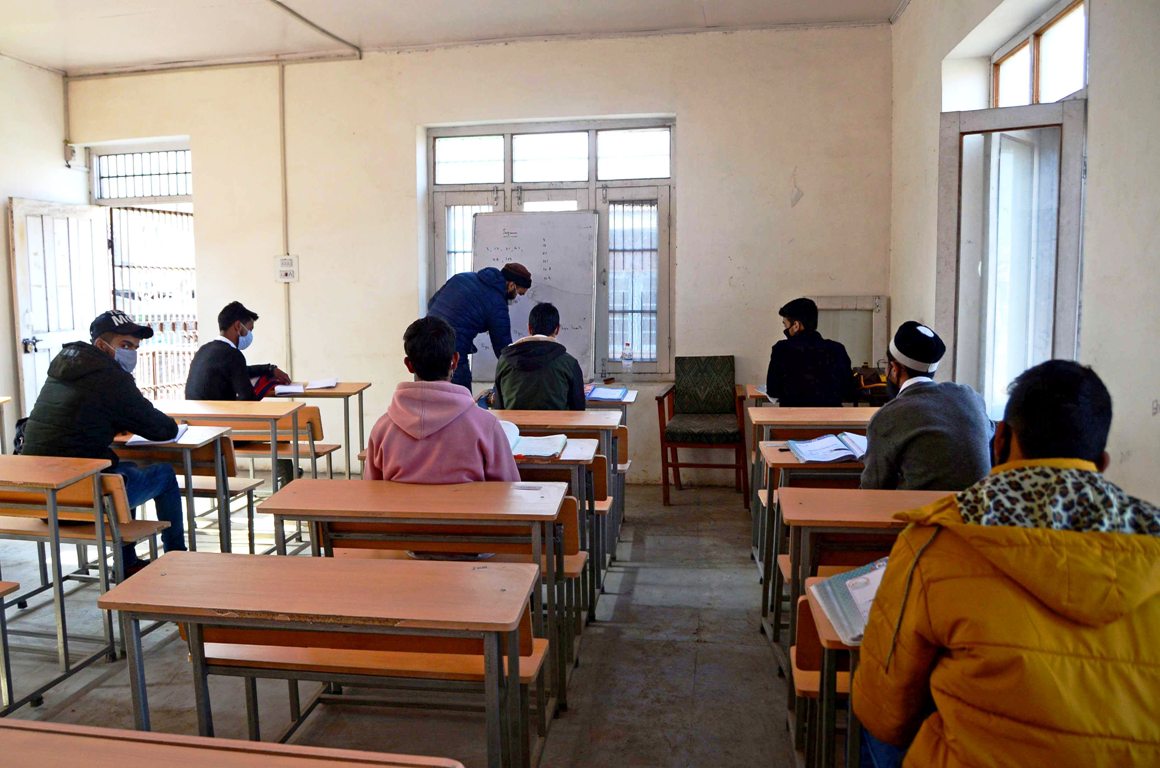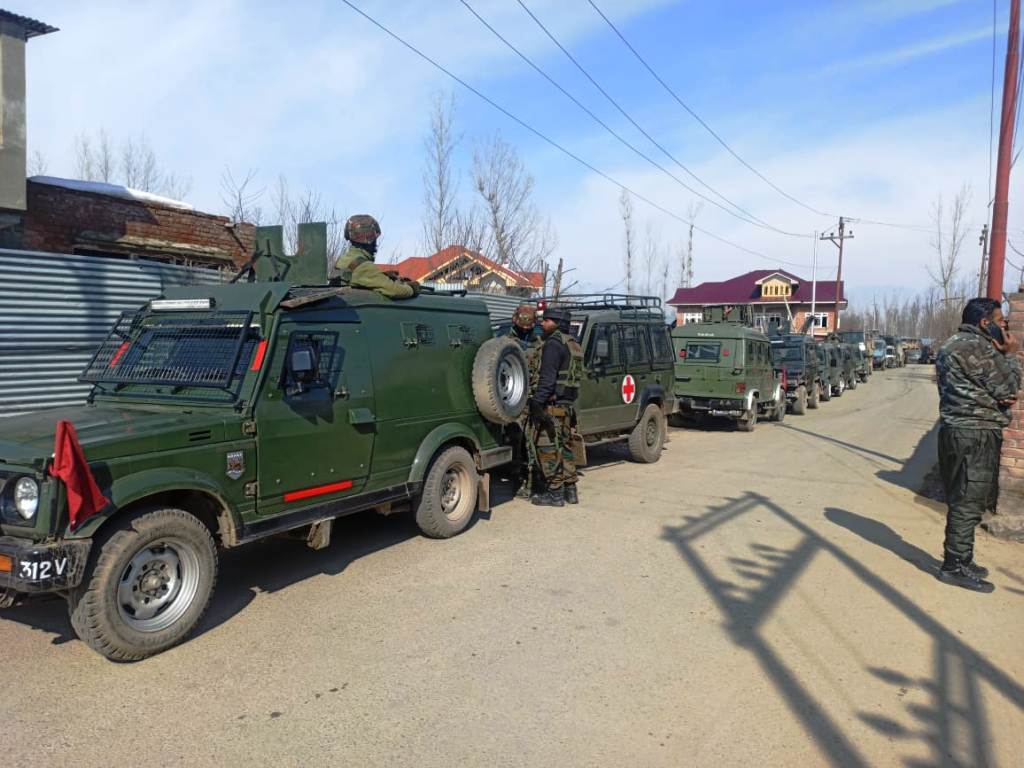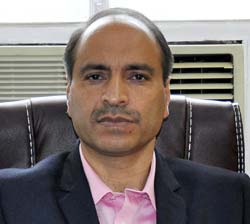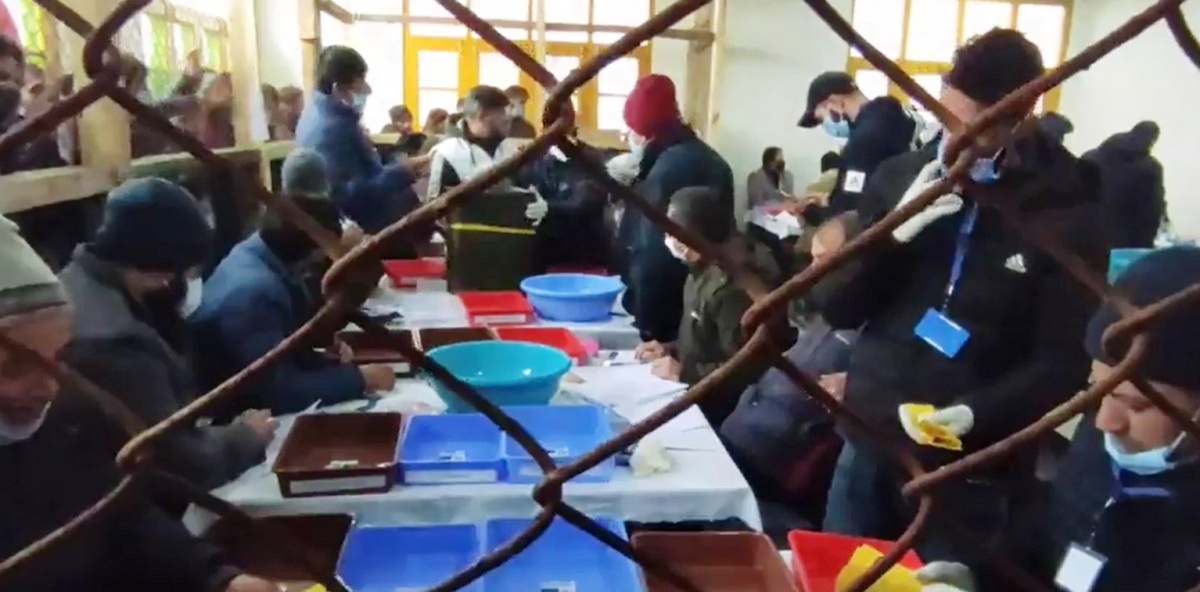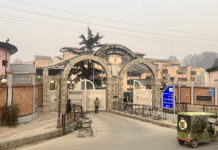SRINAGAR: Post-August 4, four United Nations (UN) Special Rapporteurs have made public their third communication forwarded to New Delhi, since the day Kashmir’s special status was scrapped. The communication expresses “grave concern over alleged excessive use of force, ill-treatment during arrests and detentions”.

The communication is seeking details and the status of a set of persons who were arrested in 2019. Some of them later died, according to the communication. The communication has come jointly from the four Rapporteurers – Nils Melzer (Special Rapporteur on torture and other cruel, inhuman or degrading treatment or punishment), Agnes Callamard (Special Rapporteur on extrajudicial, summary or arbitrary executions), Fernand de Varennes (Special Rapporteur on minority issues) and Ahmed Shaheed (Special Rapporteur on freedom of religion or belief).
The communication has been sent to the Government of India on May 4, 2020, and made public recently, after 60 days of response time.
“We would like to bring to the attention of Your Excellency’s Government information we have received concerning the continued deterioration of human rights conditions in J&K following severe restrictions imposed after 5 August 2019, in particular citing arbitrary detentions, violations to the prohibition of torture and ill-treatment and rights of persons belonging to minorities,” the communication reads.
The first communication ((UA IND 16/2019) was forwarded to India by the UN on August 16, 2019, on “restrictions on freedom of expression and freedom of peaceful assembly and of association imposed following the constitutional order in the state of Jammu and Kashmir.”
The second was communicated (UA IND 4/2020) on February 27 on alleged “mass crackdown targeting those expressing dissent against the decision taken” by the Central government. The particular communication was regarding the arrest of Mian Abdul Qayoom, the president of Kashmir Bar Association.
‘Deeply Concerned’
The Rapporteurs have expressed concern about the “Human Rights Violations” and said that they received “no response” to their communications. “We regret that no response has been received to either communication, in particular the former. We remain deeply concerned about the ongoing human rights violations,” it read.
The UN Rapporteurs quoting the information received has said in their communication that between “January and July 2019, a number of Kashmiri Muslims, persons belonging to minorities in India, were reportedly summoned to report to various army camps, where they were subjected to corporal punishment by security officials.”
Detailing the cases, the reports reveals Tawseef Ahmad, 27, a resident of Achagoza Pulwama on February 5 was “stripped naked and beaten by army personnel after reporting to the 44 Rashtriya Rifles (RR) Camp Shadimarg in Pulwama.”
In other case, Mufti Sheeraz Ahmad and his father-in-law, Mohammad Ahsan were “hospitalized after army personnel from Ahagam camp beat them in their house on 16 February in Wathoo, Shopian during a search operation.”
“Rizwan Assad Pandit, 29 year old teacher, and resident of Awantipora died on 19 March in the Jammu and Kashmir (J&K) Police Special Operations Group (or SOG) custody in Air Cargo SOG camp Haft Chinar, Srinagar. The preliminary post-mortem report found that Mr. Pandit died due to “extravasation of blood” caused by multiple injuries. He allegedly had torture marks visible on his corpse, however the autopsy report have not been made public” read the communication.
In case of a 14-year-old student Fazil Ahmad Malik, a resident of Soibugh area of Budgam district, the communication says he was allegedly being detained at the RR army camp in Daharmuna on May 26, 2019 and “subjected to torture by army personnel, along with four other minor boys. He was seriously injured on the head and was hospitalized in SKIMS, Soura. He had to be put on ventilator for weeks before he recovered. It is reported that he was hit with an iron rod on his head and then beaten with canes and gun butts. An inquiry by district police was initiated at the time but none of the findings have been made public.”
After August 5
In their several page communication, the UN Rapporteurs have mentioned cases post August 5, 2019.
It includes the case of Arif Wani, a resident of Shirmal village in Shopian district who was asked to report to the army camp of Chilpora on August 20, 2019. “He went to the camp at 9 a.m. the morning after. Shortly after his arrival he was subjected to acts of torture and other cruel, inhuman or degrading treatment. Allegedly his cries from within the camp while he was being tortured were broadcasted through loudspeakers for the neighbouring villagers to hear.”
The report reads “this was not the first and only case where the use of loudspeakers in the same manner at the camp, it is reportedly frequent. After three hours, Mr. Wani was released, he reportedly was not able to stand due to the injuries he sustained and was carried to the hospital. Soldiers returned to his home a few days later and threatened him not to reveal or share his experience.”
There were mass protests in the Haral-Watapora area of Kupwara district when the news of death in detention of Riyaz Ahmad Thickrey, 28 spread. Belonging to a Gujjar community, Riyaz as per the communication was “arrested on 2 September 2019 during a night raid in his home located at a hillock at Bandi-Nandpora, 17 km away from Handwara, Kupwara in north Kashmir. The raid was conducted against the backdrop of a protest earlier in the day. Mr. Thickrey was detained at Qalamabad police station for four days.”
Four days later, police informed the family that Riyaz committed “suicide”. “On 6 September the police informed the family that Mr. Thickery had died and claimed that he had committed suicide. It is reported that the body had a number of injuries to the skull and nose and the family suspects that he was tortured.
“Reportedly the administration on 7 September announced the launch of a magisterial enquiry into the death and appointed a Designated Tehsildar as Enquiry officer. The findings of the inquiry are yet to be made public,” read the report.
In another case of death in south Kashmir, the communication said: “Yawar Ahmed Bhat, 15 from Chandigam Village, Pulwama District. On 17 September 2019 he died in detention after consuming poison. It is alleged that he was subjected to beatings by the police and was driven to suicide due to this traumatic experience.”
While quoting several other cases, the UN Rapporteurs expressed grave concern over the happenings. “While we do not wish to prejudge the accuracy of these allegations, we express grave concern at the alleged excessive use of force, torture and other forms of ill-treatment reportedly committed during the arrest and detention, and death in custody of the above mentioned persons. We are further concerned that these individuals reportedly belong to minorities residing in the state of Jammu and Kashmir, and that they appear to be targeted based on their ethnicity and/or religious identities,” it read.
They have also expressed concern that “the alleged arbitrary arrests, torture and other ill treatment which, in at least 4 cases reportedly led to the death of the victim, which appears to be inflicted against persons belonging to minorities targeted because of their ethnic and religious identities, who had been exercising their freedom of expression and peaceful assembly.”
The communication also noted that “among the instances cited, 3 minors were reportedly subjected to severe beatings. The United Nations Human Rights Committee has determined that “arresting or detaining an individual as punishment for legitimate exercise of the rights guaranteed by the Covenant constitutes a violation of article 9” (General Comment 35, para 17). Furthermore, Resolution 8/8 of the Human Rights Council reminded Governments that corporal punishment, including of children, can amount to cruel, inhuman or degrading punishment or even to torture.”
The UN urged the Indian government “to conduct a prompt and impartial investigation, if it has not done so already, into the allegations of arbitrary killings, torture and ill-treatment and to prosecute suspected perpetrators under articles 6 and of the International Covenant of Civil and Political Rights (ICCPR), and articles 7 and 12 of the Committee Against Torture (CAT)”.
“We would appreciate receiving a response within 60 days. Passed this delay, this communication and any response received from your Excellency’s Government will be made public via the communications reporting website. They will also subsequently be made available in the usual report to be presented to the Human Rights Council.”
India’s Stand
The government of India relations with the UN HRC have been tense in recent years.
In March 2019, Special Rapporteurs on Extrajudicial Executions, Torture, and Right to Health — Agnes Callamard, Dainius Puras and Nils Melzer — had referred to a June 2018 report of the Office of the High Commissioner of Human Rights (OHCHR) and written to the government in March 2019, asking about steps taken by Delhi to address the alleged human rights violations listed in the report. They had listed “13 cases of concern” from 2018 alone, in which “four children were among eight civilians killed by members of the security forces,” according to a report published in The Hindu.
India’s Permanent Mission to the UN in Geneva rejected all claims in its reply to the OHCHR on April 23, saying that “India… does not intend to engage further with these mandate-holders or any other mandate-holders on the issue,” whom it accused of “individual prejudice”. Besides, it also rejected the OHCHR’s report on the ‘Situation of Human Rights in Kashmir’ — the first-ever such report on Jammu and Kashmir that came out in June 2018 — and accused the High Commissioner of Human Rights Zeid Ra’ad Al Hussein of “clear bias” in bringing it out.
“When asked, the Ministry of External Affairs clarified that India’s stand on not engaging with the Special Rapporteurs was only for those wishing to refer to the OHCHR report,” the newspaper reported. “However, UN officials say that India is already in contravention of several Conventions it has committed to, including a “Standing Invitation” signed in 2011 to all special rapporteurs to visit India. According to the UN records, more than 20 such visit requests, including to Jammu and Kashmir, are pending at present. UN sources also said that between 2016-2018, the OHCHR Special Rapporteurs had sent as many as 58 communications, and had received no response other than the April 23 letter on Jammu and Kashmir.”
The HRC website’s special rapporteurs section displays the last response that India’ UN permanent mission at Geneva sent to the Council was on May 27, 2019. It pertained to the state of Rohingya refugees living in India. Since then there have been many communications from the UN Officials but no response from MEA.



